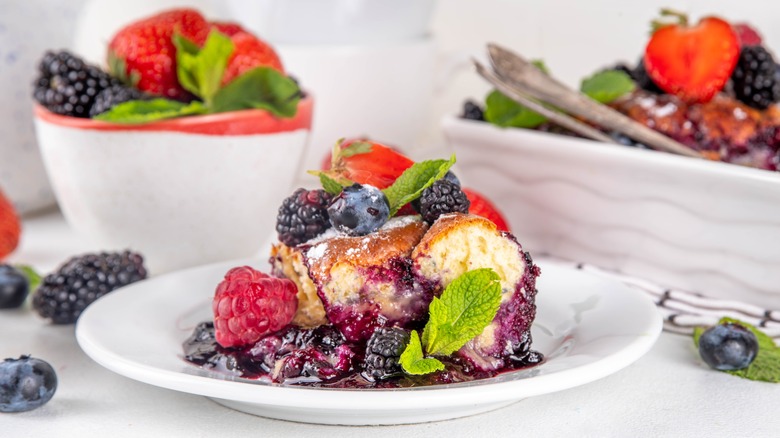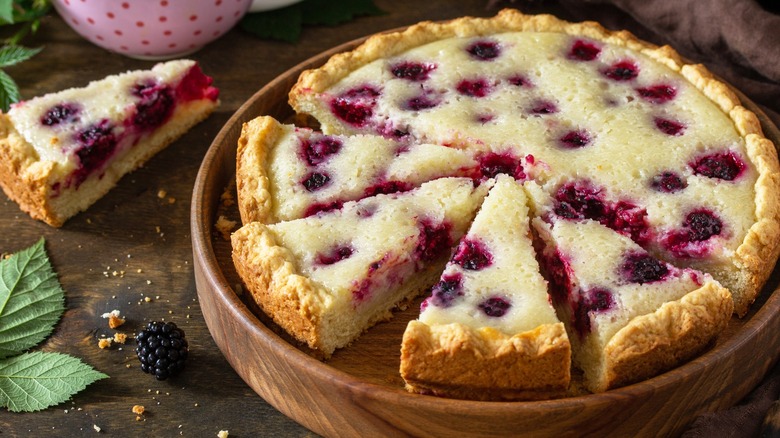What To Consider When Swapping Blackberries With Black Raspberries
Each year, as gardens and meadows grow into full flourish in summer, a battle inevitably ensues between wild blackberries and black raspberries — that the former usually wins. Both hardy and thorny brambles, the two spread quickly, with lots of help from the birds, bugs, and varmints that consume and spread fertilized seeds. For gardeners, this, along with the sharp thorns, can turn them into a menace that crowds out other plants. For cooks of all stripes, however, the abundant berries produced by the plants offer a tremendous culinary opportunity, elevating everything from jams and compotes to cobblers and tarts.
Because the two fruits look alike at first glance — both composed of a cluster of small black drupelets to form the "berry" — it's easy to confuse them. The resemblance may also motivate some to simply swap one out for the other or mix the two without a second thought. However, that could be a mistake with significant impacts on the taste of the dish you use them in. Firstly, black raspberries are sweeter than blackberries, affecting the amount and balance of sugar in a dish. However, they also contain less juice than blackberries, so you'll need to use a larger number for a similar result. That, in turn, can overload a dish with seeds and skins that may need straining. As such, calibration is key.
Blackberries vs black raspberries in cooking
Because of the differences in the two berries, it's important to consider how they might impact what you are cooking — as well as which dishes each may lend themselves well to over the other. For example, because of the high water content in blackberries, they work particularly well for smoothies, cocktails, compotes, and other great blackberry recipes. That same juice volume, however, might also make you think twice about the amount in the pie, as it could more easily make a soggy bottom.
With black raspberries, their sweet and woodsy taste offers cooks the opportunity to dazzle the diner with a flavor that's hard to put your finger on, especially when combined with complementing ones like nuts, coconut, mint, and chocolate. That said, when it comes to cooking with either berry, there will be a lot of overlap according to personal taste and whatever Grandma did. Another consideration for chefs choosing between blackberries and black raspberries might be the nutritional elements of each and the health needs of the person eating.
While both berries certainly offer many health benefits — especially fiber and vitamin C — black raspberries contain significantly higher levels of antioxidants than blackberries, which makes them all the more appealing for health-focused dishes, not to mention powders and supplements. A 2020 study published in Nutrients also showed benefits on skin inflammation, making them great for people with hypersensitivity. People needing to increase bone strength may lean toward blackberries instead, owing to their high level of vitamin K. Understanding these nutritional differences between black raspberries and blackberries can help you choose between one or the other in your favorite summer berry recipes.

